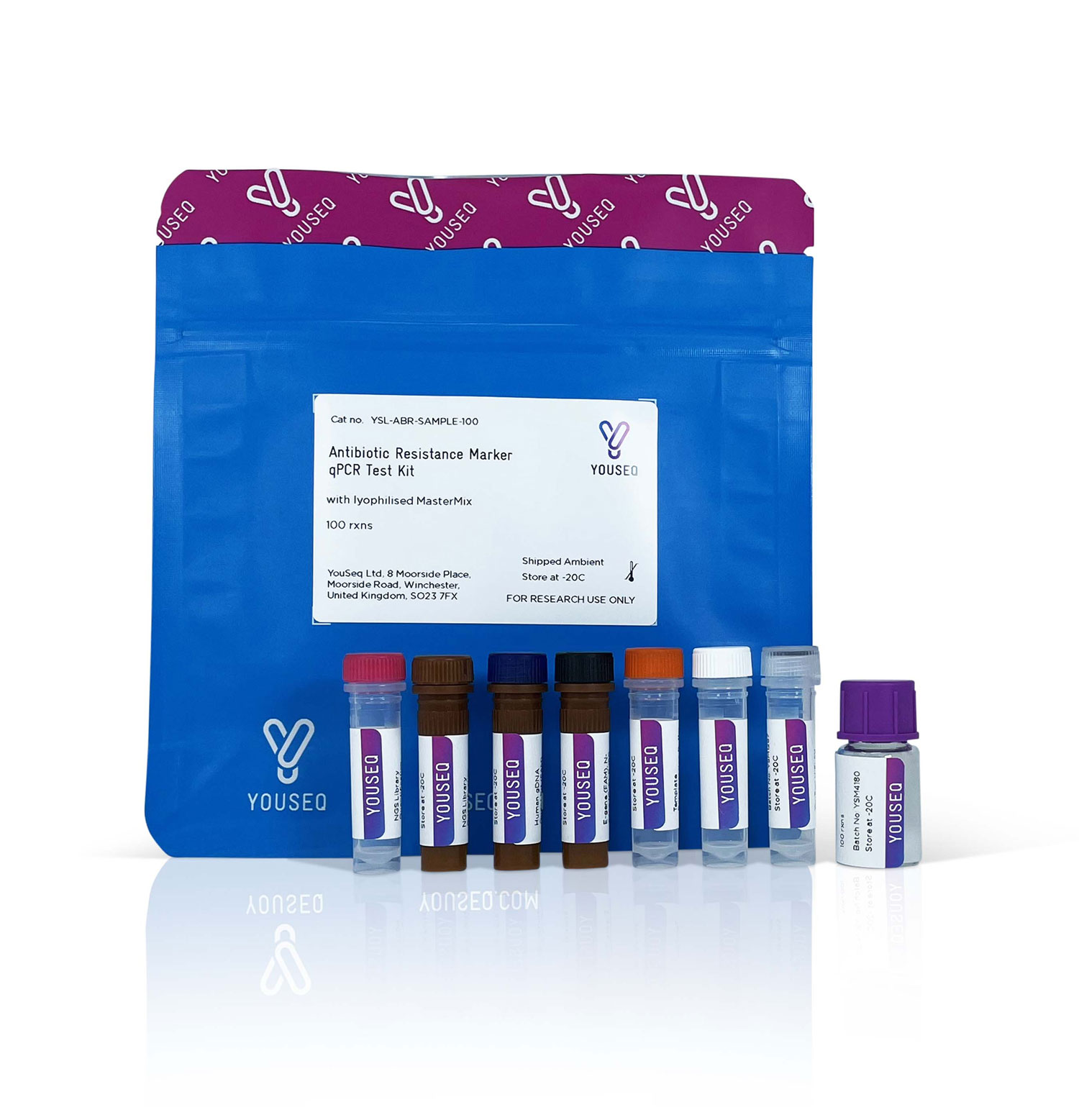
A complete qPCR kit for the detection of Class A beta-lactamase (KPC) Resistance
KPC (Class A Beta-Lactamase) resistance is a major concern in the healthcare sector, especially in hospital-acquired infections. It is caused by the production of enzymes that can hydrolyze beta-lactam antibiotics, rendering them ineffective. Failure to detect KPC early can lead to treatment failures, prolonged hospital stays, and increased healthcare costs. Syndromic diseases associated with KPC resistance include various types of bacterial infections in both humans and animals.
YouSeq's qPCR kit to detect KPC allows for fast and accurate identification of this antibiotic resistance marker. By detecting KPC early, clinicians can make informed decisions on the appropriate antibiotic therapy, which can lead to better patient outcomes, reduced spread of resistant strains, and overall improved healthcare management.

Price on enquiry
Order nowFor Research Use Only. Not intended for diagnostic use.
Contents
Endogenous control primer/probe
qPCR MasterMix
Positive control template
DNase/RNase free water
Template resuspension buffer
ROX passive reference
Technical specification
Efficiency: 90-110%
Run Time: Approx 1hr30 (dependent on instrumentation)
Target Marker: FAM labelled
Endogenous Control: VIC/HEX labelled
Product variants
YS-ABR-KPC-100 : Frozen version for dry ice shipping
Pseudonyms
Klebsiella pneumoniae carbapenemase; KPC; Carbapenem-resistant Enterobacteriaceae; CRE; Superbug; Multi-drug resistant bacteria; Carbapenemase-producing organism; CPO; Beta-lactamase-mediated resistance; ESBL; Extended-spectrum beta-lactamase